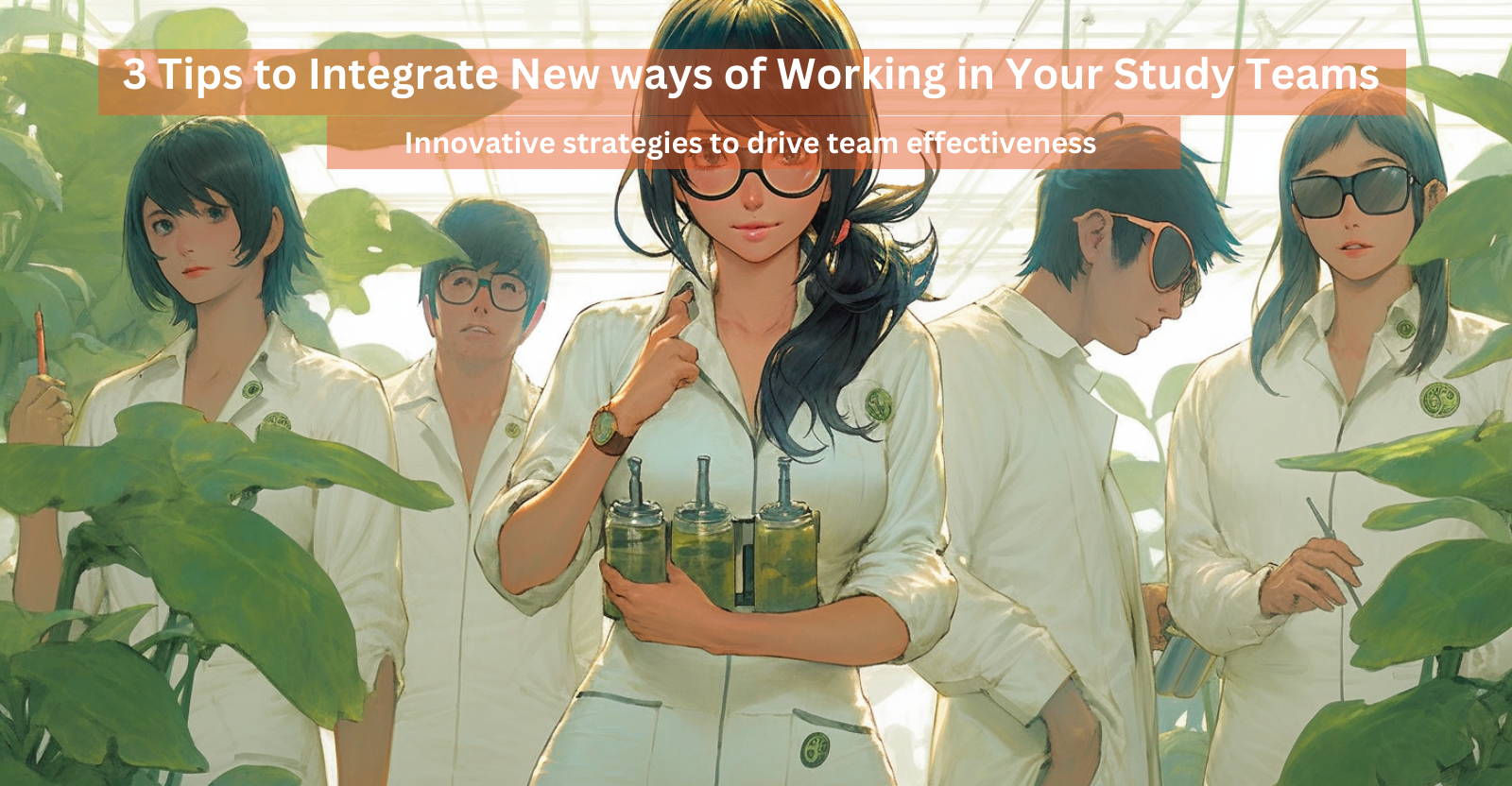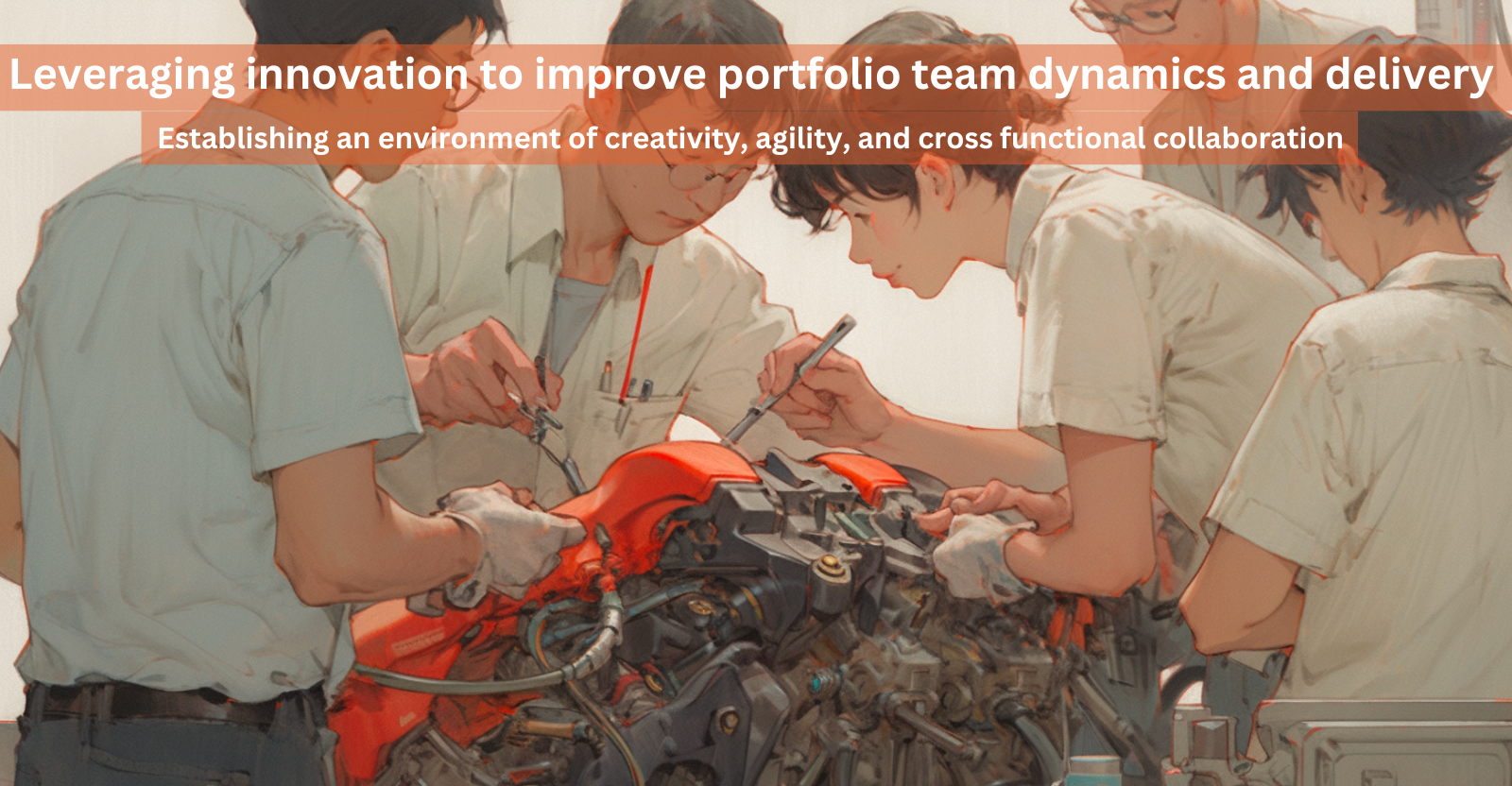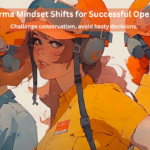We work in a complex industry, and the complexity is increasing. Some of the contributing factors are the looming economic uncertainties, ongoing geopolitical conflicts, and evolving workforce dynamics, Leaders are overwhelmed with the burden of keeping their teams motivated and focused to consistently deliver value to their organizations. To address these challenges and distractions, Leaders must find innovative strategies to integrate new ways of working into their teams effectively. Here are some practical ways to consider:

Intentionally Create Psychological Safety
Creating a psychologically safe environment in the workplace is essential to your organization’s success and overall team health. When people feel safe to openly share their ideas, take on risky but high-reward tasks, and engage in open dialogue without the fear of judgment and negative consequences, it can lead to better engagement, increased productivity, and enhanced overall well-being of your organization.
Leaders should recognize that establishing and sustaining a psychologically safe environment is an ongoing journey that requires consistent effort, commitment and collaboration between leaders and team members alike. Here are some practical ways to intentionally create a psychologically safe environment:
- Foster Trust: Trust is the foundation of a psychologically safe environment. When team members trust you, they will be more willing to do more for you and the organization. Build trust by continuously providing support for your team, keeping your commitments, and demonstrating empathy.
- Open Communication: Encourage your team to speak freely and express their ideas, opinions, and concerns. Open and honest communication is not only appreciated by the team, but it also promotes psychological safety in the workplace. Ensure that everyone feels that their opinion matters, and they their voices are heard, valued, and acted upon as appropriate.
- Respect and Empathy: Practice putting yourself in one’s shoes and seeing their perspectives, feelings, and emotions. Encourage team members to also see other people’s viewpoints and remove any preconceived bias they might have. This will lead to developing mutual respect and empathy.

Co-Create the Working Environment with your Teams
Co-creating the working environment with your teams involves actively involving team members in shaping the conditions and culture in which they work. This approach fosters a sense of ownership, engagement, and empowerment. Here are steps and strategies to co-create the working environment with your teams:
- Communicate the Vision: Leaders who effectively communicate their vision will get the best response and support from the team. By setting the right tone, painting the picture of the desired outcome, and modeling the behavior they want to see in their team, Leaders will attract a higher level of engagement and will make the team feel excited to be part of the mission.
- Recognize Team Member’s Contribution and Impact: Emphasize the importance of each of the team member’s role and how their work will impact the overall success of the mission. Be sure to communicate that their work matters and that their contribution is crucial in accomplishing the mission.
- Support Learning and Growth: Create an environment that promotes continuous learning and growth. Be a Servant-Leader that provides them with the resources they need to do the job and additional support in order to set them up for success. Constantly ask the question, ‘As a leader, how can I support you to ensure our success?’

Focus on Learning Rather Than Failure
Failure is something that should not be feared by your team, but rather celebrated with the intention of focusing on the learning aspect of failure. When something does not work or does not produce the outcome as expected, encourage your team to view it as a learning opportunity rather than a failure. Here are some practical ways to focus on learning instead of failure:
- Fail-Fast: The ‘Fail-Fast Mentality’ encourages the team to take an iterative approach to problem-solving and innovation by allowing them to do work and perform experiments in shorter cycles, to fail fast and to learn faster from their mistakes. Rather than pursuing the ‘perfect solution’ upfront which typically takes considerable time & effort, encourage your team to take on shorter work cycles that will enable faster experimentation, faster feedback and faster integration of lessons learned that can then be applied real-time to your next projects.
- Develop Feedback Mechanisms: Cultivate a culture that encourages positive and constructive feedback. Team feedback should be honest, specific, and actionable that focus on problem-solving rather than personalities. Create formal feedback channels for your team to report any findings, suggestions, and concerns on the projects they are working on. Ensure that your team feels psychologically safe to participate in the feedback process, and that appropriate actions will be taken in response to concerns or areas of improvement.
- Celebrate Wins (and Failure): Celebrate wins (and failure learnings) with team, no matter how big or small the wins are. Recognize and celebrate instances where taking calculated risks, experimenting on new ideas, and pursuing actionable steps have led to positive outcomes and desired results. Create a growth mindset where failure is expected and accepted as a part of the process so that people are more willing to explore innovative ideas. Remember that positive reinforcement can boost morale, encourage good behavior to be repeated, and strengthen the sense of having a psychologically safe environment.
Leaders who effectively navigate these challenges and integrate new ways of working into Teams will be better positioned to lead their teams through uncertain times, foster innovation, and maintain a positive organizational culture. By embracing these practical strategies and putting them into actionable steps, Leaders and Teams alike can achieve their goals and gain sustainable competitive advantage.









